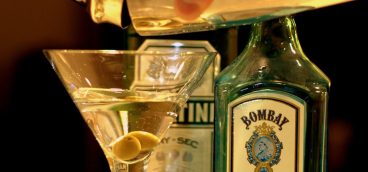The Mysteries of Vodka

Vodka
“Vodka is unlike other forms of alcohol in that there is no justifiable excuse for drinking it … you might as well inject vodka into your bloodstream.” Russian writer Viktor Yerofeyev
Previously in this series: The Near Classic Cocktails
For much of my drinking life I assumed that vodka-was-vodka, a neutral grain spirit that tasted the same – if at all – no matter the brand. But then one day a colleague suggested that we have dinner at the Russian Tea Room in New York, since we were staying nearby.
The Russian Tea Room was founded by the Russian Imperial Ballet in 1927 and it’s a spectacular, magical room with good food, caviar and … vodka flights. That night, if I remember correctly (things began to get a bit hazy after my fourth flight), there were 12 flights on offer and, naturally, I felt obligated to attempt them all.
Two interesting things happened that evening. The first was that my colleague fell in love with the attractive woman sitting just across the room from us. He didn’t have the nerve to go over and say hello, but then I said, “She just signed the check and is about to leave – it’s now or never!”
He took a deep breath and stood up. So did the attractive woman – who turned out to be six-feet-five inches tall. My colleague sat back down. Love is hard.
The second interesting thing was that I learned that vodka-isn’t-vodka at all – every glass in every flight tasted slightly different. One of the vodkas – Moskovskaya Osobaya (“Moscow Special”) was developed in 1894 by, believe it or not, Dmitri Mendeleev, the brilliant Russian chemist who created the periodic table of elements.
Back in Pittsburgh I mentioned this experience to a bartender at Legume Bistro, a terrific restaurant founded by my daughter and her husband (it’s now called Butterjoint). She suggested that I try tasting vodkas at room-temperature – the way they drink it in Russia – because the flavors, textures, and aromas would be more robust.
This sounded like a lot of fun and so I tried it. It was more than fun, despite that fact that I had to call in sick several days in a row.
Vodkas are made with different grains (wheat, winter wheat, rye, beets, potatoes) and made using different distilling methods: some vodkas are distilled once, some twice, while others are distilled and redistilled many times; some vodkas are filtered through charcoal, some through silver, some through sand-quartz.
Vodka is simple to make, and it’s been around in places like Russia, Poland and elsewhere since the 1400s. Especially in Russia the state used vodka as an instrument of oppression. Both Peter the Great and Catherine the Great encouraged Russian citizens to drink more and more vodka because they needed the tax revenues, resulting in a drunken and enervated peasant population.
In the mid-1800s the temperance movement hit Russia, causing people to curtail their drinking. This so threatened Moscow’s revenues that the Russian army had to be called out to force people to drink. The “health and well-being of Russian society was diametrically opposed to the financial interests of the Russian Empire” as they say in The Oxford Companion to Spirits and Cocktails (TOCSC).
When teetotaler Tsar Nicholas II halted production of vodka – Russia was the first Prohibition country – he not only bankrupted the government but caused its eventual downfall, leading to the USSR. Later, Stalin, a heavy drinker, made the state vodka monopoly the underpinning of his government, but Mikhail Gorbachev, the reformer, launched an anti-alcohol campaign, “blowing a massive hole in the state budget.” (TOCSC)
Then, somehow, the oppressive Soviet state picked itself up and migrated to the Commonwealth of Pennsylvania. Except for Utah (!), Pennsylvania is the only state in the union to enforce a state monopoly on the sale of booze. If you want to buy an innocent bottle of chardonnay you have to take yourself to one of the inconveniently located Pennsylvania Fine Wine & Good Spirits Communist Monopoly stores and pay an outrageous price.
But it gets worse. Early in the pandemic Pennsylvania’s governor, obviously suffering from COVID Derangement Syndrome and not satisfied that his citizens were sick, dying, and miserably quarantined, decided to rub it in. He announced without notice that every liquor store in the state would close immediately.
No doubt the governor imagined, like Stalin, that we would all meekly comply, but he had badly misread his state’s history – cf., the Liberty Bell and the Whisky Rebellion. As I watched my meager supply of booze dwindling before my eyes, I re-read my Thomas Paine and then Googled “How can I find a liquor store that’s open even though my governor is a Communist despot?” (It turned out be the most-asked question on Google.)
Alas, the nearest open store was on Wisconsin Avenue in Washington, D.C., a 10-hour roundtrip from my house. Undeterred, I climbed into my Grand Cherokee and headed southeast. At the store I loaded the Jeep to the gills, then headed home. As I drove along the Pennsylvania Turnpike past Harrisburg, I made a rude gesture in the direction of the Governor’s Mansion and, laughing hysterically, shouted, “Don’t tread on me, pal!”
But I digress. Stolichnaya is a terrific vodka and in 1972 PepsiCo gained the right to distribute it in the West in a barter agreement with the Commies, who in turn got the rights to sell Pepsi in the Soviet Union.
When the USSR was unraveling, an attempt was made to convert the producer of Stolichnaya into a private company. But, this being the Soviet Union, no one knew who owned the damned thing!
In any event, a Russian billionaire was worried that Americans might stop buying vodka produced in Russia, so he moved production of Stolichnaya to Latvia. Well, he sort of moved production – the “new” Stolichnaya used Latvian water but it still sourced its alcohol from Russia.
Finally, when Russia invaded Ukraine the Russian billionaire moved all production out of Russia and changed the name of his vodka to “Stoli,” which is now apparently a different product from Stolichnaya. You can look at the Stoli website for a long time without realizing that the vodka was ever associated with the USSR.
Next up: The Oxford Companion, Part 10












